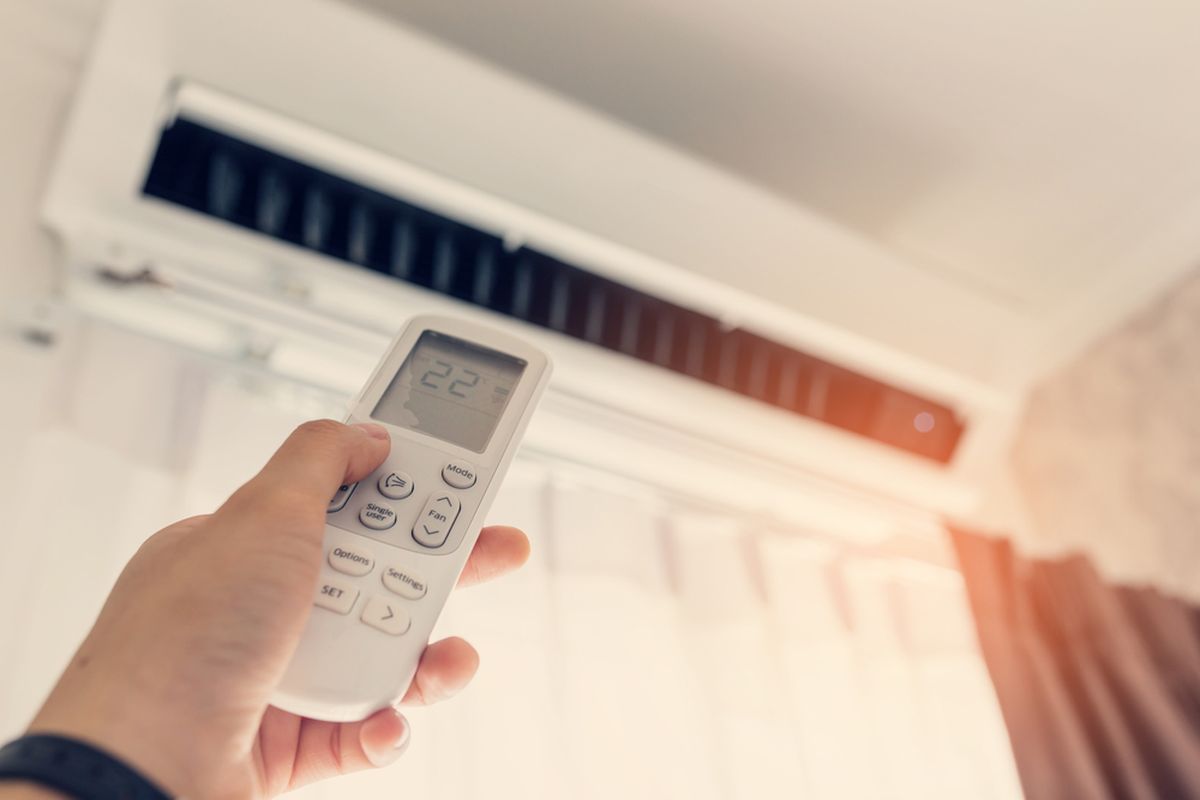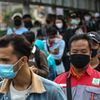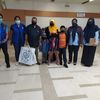Coronavirus Pandemic Makes Cooling Off from California Heatwave a Struggle

The city's cooling center, set up in a large meeting room, can only accommodate 10 people before workers have to open an adjoining room, Sander said. That is half or less than its usual capacity.
The city is not taking the temperatures of everyone who comes in but asks anyone with a self-reported fever to stay away.
Among those most likely to suffer from extreme weather are people without homes like the Diazes, and the elderly on fixed incomes who might not have air conditioning or, if they do, may feel that they can't afford to use it, said Mary Jo Flynn-Nevins, the emergency operations coordinator for Sacramento County.
Public agencies opened eight cooling centers in the county during last week's heatwave, each able to accommodate between 10 and 40 people, she said.
With more than 5,500 people homeless in Sacramento County last year, and around 225,000 elderly, space for residents to shelter from harsh weather can quickly run short, Flynn-Nevins said.
Statewide, cooling centers were opened in 24 of California's 58 counties, according to the California Department of Emergency Services.
The administration of Democratic Governor Gavin Newsom did not respond to requests for comment about the challenges of offering respite from the heat during the pandemic.
Read also: Joe Biden Endorsed by US Democrats to Face Donald Trump in November Election
But the state has encouraged residents to limit their use of electricity to avoid overtaxing the power grid and prompting blackouts.
When the temperature neared 100 Fahrenheit in the Sherman Oaks section of Los Angeles, Magdalay Arriola went to the East Valley Adult Center, where she sat with a water bottle and portable lunch cooler, reading a book.
About 10 people, 6 feet apart and wearing masks, sat in the air-conditioned room. Employees in protective suits cleaned tables and chairs with disinfectant.
"The AC is not working in my house, and I was getting really overheated," said Arriola, 55. "Hopefully this is safe."
Her worry that the cooling center may not be safe from Covid-19 is common, said Chad Carter, a spokesman for the Red Cross.
People also worry they may spread or contract the virus if they seek shelter with friends or family.
But they also must recognize the dangers of soaring temperatures, which include heat exhaustion and heat stroke.
"Extreme heat is a risk just like Covid-19," he said. "Extreme heat can be deadly."
(Writers: Sharon Bernstein, Lucy Nicholson | Editor: Cynthia Osterman)
Simak breaking news dan berita pilihan kami langsung di ponselmu. Pilih saluran andalanmu akses berita Kompas.com WhatsApp Channel : https://www.whatsapp.com/channel/0029VaFPbedBPzjZrk13HO3D. Pastikan kamu sudah install aplikasi WhatsApp ya.

































